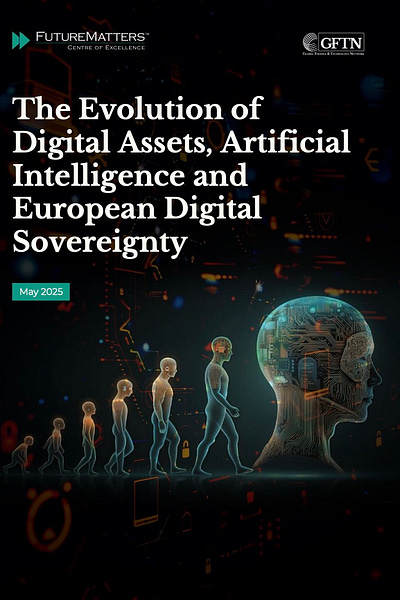Transatlantic Freeze: Digital Euro & EuroStack Reclaim EU Digital Sovereignty
Trump tariffs put digital sovereignty in the hot seat globally
This is my daily post. I write daily but send my newsletter to your email only on Sundays. Go HERE to see my past newsletters.
HAND CURATED FOR YOU
Trump tariffs have made digital sovereignty a hot-button issue, and the European Central Bank (ECB) is questioning whether Silicon Valley, US dollar stablecoins, and a payment system reliant on the US’s Visa and Mastercard align with its best interests.
The ECB has long bemoaned the lack of a European retail payment system, which contributed to its launch of the digital euro program. Now, in an era of trade wars and trans-Atlantic freeze, the EU’s dependence on US Visa and Mastercard for something as basic as payments is untenable.
Similarly, with US dollar stablecoins set to become the US’s “digital dollar,” fears of “digital dollarization” due to substitution risk are also increasing. These concerns aren’t unfounded, given that USD stablecoins constitute 90% of the EU stablecoin market capitalisation and over 70% of European trading volume.
This was another driving factor in developing the digital euro and why the EU did not pursue stablecoins to digitize its currency, as did the US. Why join a crowded market?
Now, the EU faces a new digital threat from Silicon Valley AI companies, which are once again asking EU citizens and companies to hand over their data, in the next phase of digital colonialism.
The EU’s lawsuits against Google, Apple, and Meta for antitrust violations, abusing market dominance, and unfair business practices are the stuff of legend. OpenAI is likely next on the list.
Into the fray enters the “EuroStack” which borrows its name from the more famous “India Stack” as a European alternative for technical sovereignty.
The EuroStack is a suite of digital infrastructures: from connectivity to cloud computing, AI, digital IDs, and the digital euro.
The EuroStack will not end the EU’s dependence on Silicon Valley. Still, it is a start and an essential response in a new world where digital sovereignty is now everyone’s problem, except for India and China, which built their tech stacks.
If only the EU could go back in time to pursue a similar vision.
👉Core Principles of the EuroStack
🔹 Sovereignty and Security
Guaranteeing that Europe’s critical digital infrastructure is under European jurisdiction and protected by robust security-by-design and privacy-by-design.
🔹 De-Proprietarization and Interoperability
Promoting integration across an open-source, federated tech stack while reducing reliance on Big Tech proprietary solutions.
🔹 Sustainability
Building energy-efficient and resource-resilient systems to meet Europe’s Environmental and Climate objectives.
🔹 Data as a Common Good
Treating data as a shared resource to unlock innovation while safeguarding societal interests and fundamental rights.
🔹 Decentralized Sovereign Infrastructure
Combining edge computing and centralized systems for improved efficiency and data sovereignty.
🔹 Inclusive Governance
Ensuring harmonized regulations, accountability, and a balance between short-term resilience and long-term autonomy.
🔹 Strong Democracy
Digital technologies that do no harm, but fundamentally strengthen democratic societies.
More information and a white paper about EuroStack is available: HERE
For those interested I recommend the writings of Yannis Varoufakis and his book “Technofeudalism.”







